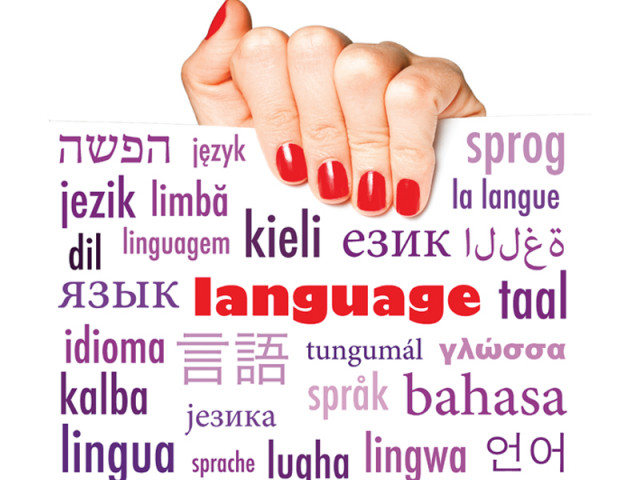Strangers in a strange land
Students from countries like Bangladesh, Iran do not know what they are getting into when they arrive in Pakistan.

When international students arrive as freshmen in Pakistan, they have to deal with concerns like homesickness, culture shock, religious differences and language barriers. Amongst all these concerns, overcoming the language barrier is the most challenging one.
Watching a solitary Kenyan student at the University of Karachi clad in a traditional ‘boubou’ (a flowing wide-sleeved robe worn by Africans) with headphones on, gave us an impression that perhaps this is an expression of disinclination towards her environs. But when Margaret talks, she talks sense, “My mother tongue is Swahili but one ought to know Urdu in order to socialise in this country. Unluckily, I still have an injured sense of Urdu,” she chuckled, “I can understand but cannot speak Urdu. So, I really feel language is a barrier between my individual and social life.”
Echoing Margaret’s thought, a Somali student Haleema Abdul Fatah also holds the language barrier responsible for the alienation of foreign students from the rest of the society.
“English is a commonly understood language in Pakistan but English isn’t widely spoken in many of the countries we international students hail from. At times, we are not able to communicate our thoughts fluently or if we manage to speak, then Pakistanis find it difficult to understand and respond,” she says. On the other hand, Mahsima Tasbihi, an Iranian student of Pharmaceutics, expressed her resentment towards the administration of the University of Karachi. “The KU clearly mentions in its prospectus that the medium of instruction for all courses would be English, and even the Students’ Advisor assured me in this regard. However, once I got the admission and I’m here, no one bothers to pay attention to my woes. Almost all course supervisors deliver their lectures in an amalgam of incomprehensible Urdu and English.” Unavailability of scholarships for Iranian students in any other part of the world has added to Tasbihi’s miseries. Consequently, she’s been studying on self-finance paying Rs75,000 per semester.
From institution to institution, the predicament of foreign students remains pretty much the same. In Sindh Medical College (SMC), amid frequent bursts of youthful laughter, our centre of attention was a rather alienated group of students – ‘the foreigners’, as identified by the local students of this institution. Sitting in one corner of the cafeteria situated by the wall of the SMC’s vast atrium, they seem completely immersed in their own world.
However, there have been students who are conversant with English but drew an entirely different picture. A Nepali student, Bhawna Khakurel said, “I don’t find any difficulty in comprehending the lectures and the teachers are very supportive at the SMC. But knowing English isn’t all that you can have for good. If you speak in English, even rickshaw and taxi drivers demand a high fare, which Pakistanis would find many times more than the customary one.”
A Yemeni trio — Bakil Saleh Ahmed, Mohammed Saeed Kazim and Nasr Al Shawash think differently. They believe, “Language alone isn’t the only means of communication. In order to exchange well wishes or feelings of care, we can even use our smiles. But in Pakistan, people seem to suffer from mood-swing disorders. On one given day, you’d find them pretty affable but the very next day they’d pass by as if they don’t even recognise you.”
Though for the most part, foreign students praise Pakistanis for their hospitality but time and again the language and cultural barriers prevent them from mixing with their fellow students.
A Sri Lankan medical student, Aqeel Azmi, rightfully asserts, “Before issuing visas, our embassies should run programmes for language counselling so that students can easily adjust in the country they are heading to.”
Published in The Express Tribune, April 23rd, 2011.



















COMMENTS
Comments are moderated and generally will be posted if they are on-topic and not abusive.
For more information, please see our Comments FAQ